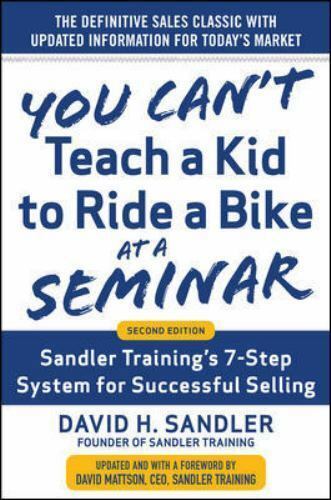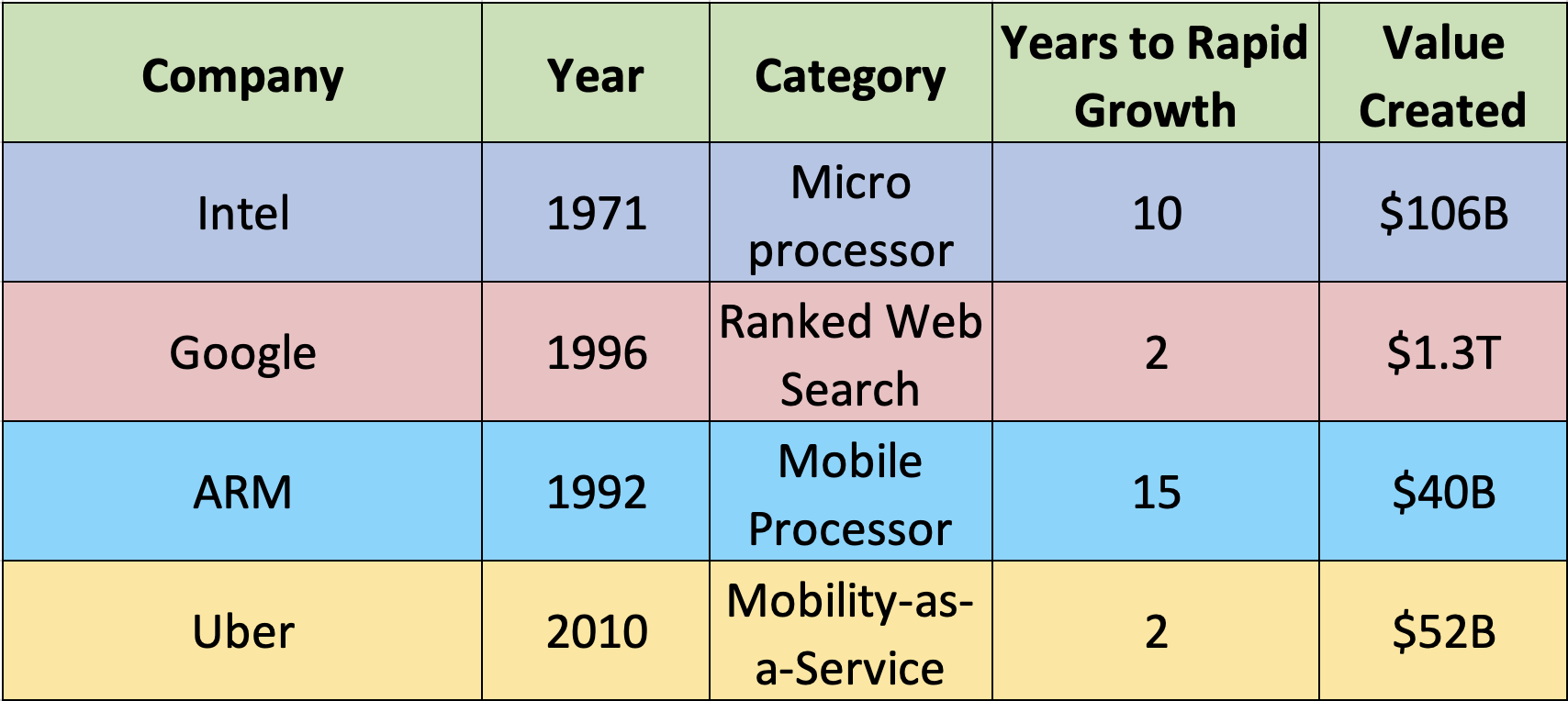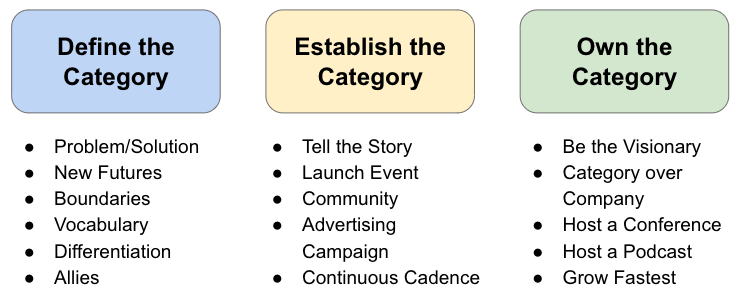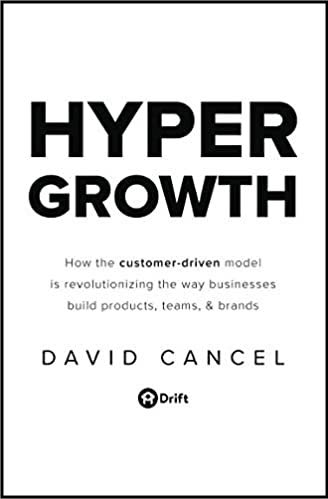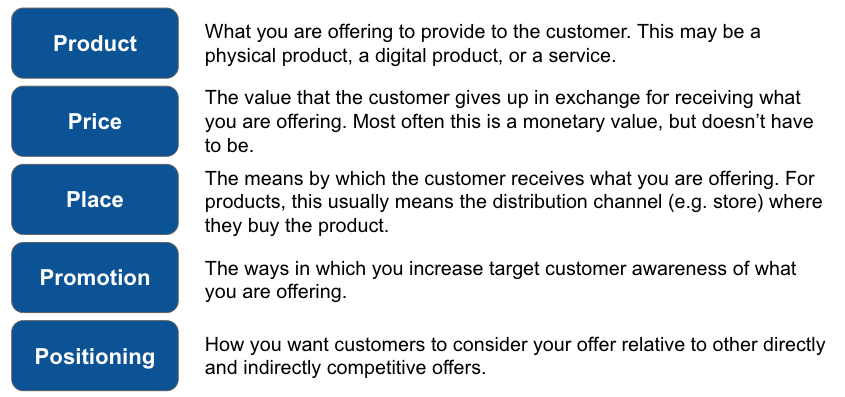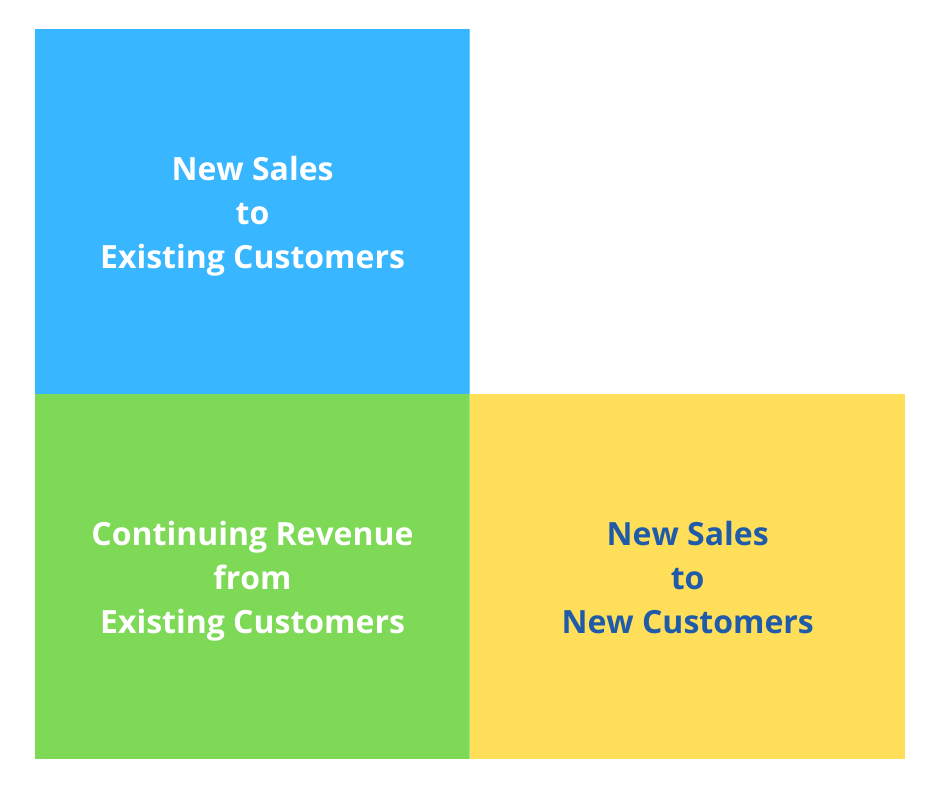Book Brief: You Can’t Teach a Kid to Ride a Bike at a Seminar
Good salespeople have a well-defined system that they consistently apply in their dealings with customers. For those without a system, or whose current system isn’t working, You Can’t Teach a Kid to Ride a Bike at a Seminar by David H. Sandler is for you. It teaches the Sandler System. It does so through an engaging and entertaining writing style, giving lots of real world examples, and calling out plenty of “Sandler Selling Tips” along the way.
The name of the book is meant to emphasize that you aren’t really going to learn how to sell by reading the book. It will provide head knowledge about the system and specific techniques critical to success in using the system, but you’re going to need to practice those techniques, and probably fail a few times, before you really learn it. Since the Sandler organization operates 250 training centers around the world, I’m guessing the book is also intended to emphasize that it helps to have someone running along side you, encouraging you, and pointing out how to get better at selling.
You Can’t Teach a Kid… is fun to read and full of great content. Even if the Sandler System isn’t for you, you’ll pick up some good ideas for improving your sales approach. But if you don’t have a system, or your system isn’t working, this book might just begin to teach you a system worth trying.
Click the link below to read my full review.
https://clearpurpose.media/book-brief-you-cant-teach-a-kid-to-ride-a-bike-at-a-seminar-994d3987306b?sk=674bb9ccf4555070be7ee3ef8483a748
Book Brief: You Can’t Teach a Kid to Ride a Bike at a Seminar Read More »

